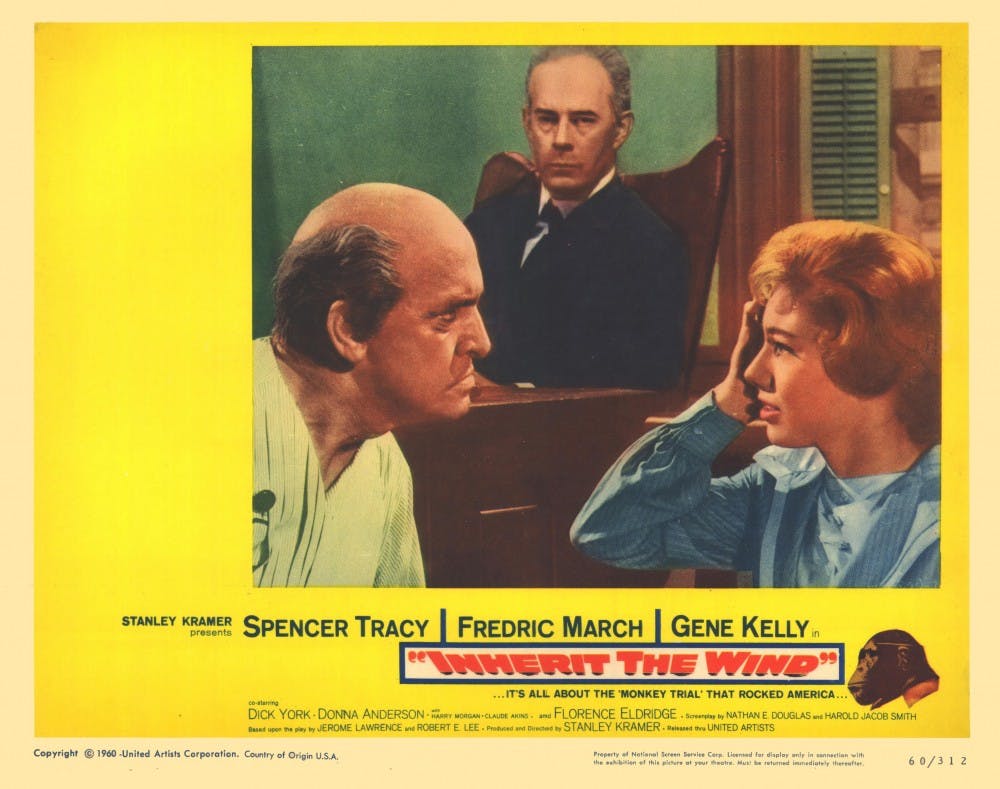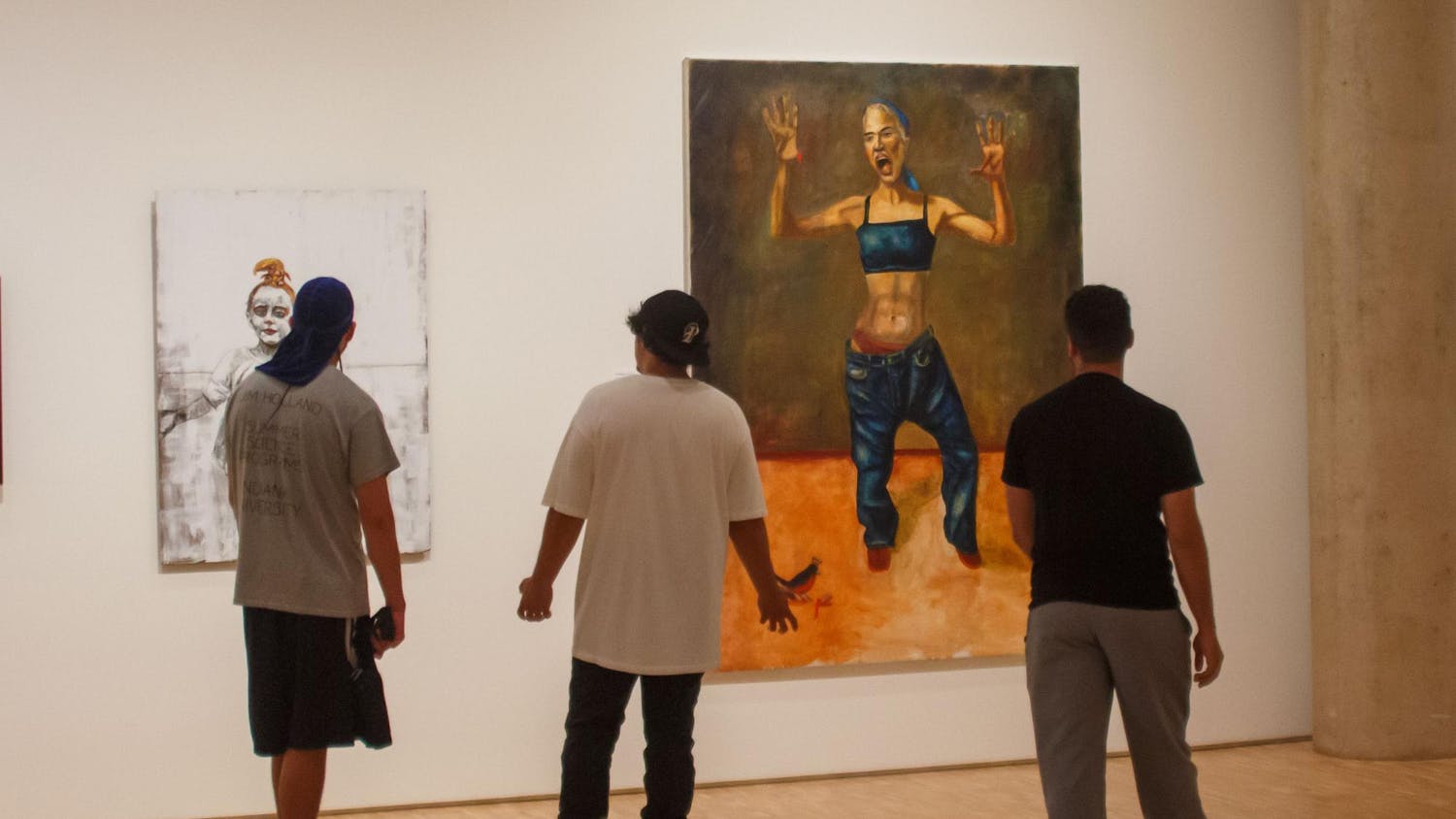According to a recent Gallup poll, 38% of Americans believe God created man in present form in the last 10,000 years or so. The number of Americans who accept Charles Darwin's theory of evolution is at a record high.
This was hardly the case in 1925 in when the small, pious city of Dayton, Tennessee, tried high school teacher John Scopes for teaching Darwin’s theory of evolution — that humans evolved from a lower order of creatures — in his high school classroom. He was charged with violating Tennessee’s Butler Act, which prohibited teaching evolution in a public school.
The Scopes Monkey Trial rendered Dayton a media circus and the Bible Belt a target of national ridicule.
At its core was the turbulent clash of ideas: Mysticism versus reason, religion versus science, the Enlightenment versus the Dark Ages.
Stanley Kramer’s film, “Inherit the Wind,” is a brilliant dramatization of the battle.
An allegory of the infamous McCarthy hearings of the 1950s – one of the screenwriters, Nedrick Young, was on the blacklist – Kramer’s film is tense and rich with intelligent dialogue and impassioned monologues.
It stars legendary actor Spencer Tracy as Henry Drummond, an agnostic who takes after the great Clarence Darrow, who litigated in Scopes' defense. Actor Frederic March plays Matthew Harrison Brady, who takes after three-time Presidential candidate and former Secretary of State William Jennings Bryan, a bombastic Christian fundamentalist.
Dancer Gene Kelly takes a later-career, dramatic turn as a sarcastic reporter, patterned after essayist H. L. Mencken, who ridicules the small town’s ignorance and bigotry.
Powerful supporting performances are delivered by Dick York as the school teacher Bertram Cates – patterned after Scopes – who dares teach young minds to think.
Claude Atkins plays the town’s dogmatic Reverend, who will damn to hell even his own daughter for standing by Cates.
Donna Anderson plays the Reverend’s daughter who’s in love with Crates, forced to choose between standing with her family or with her beloved and his ideals. Florence Eldridge plays Brady’s even-handed wife, who stands by her husband despite his imperfections. She laments Drummond and Brady, who were once great friends, as they are pulled apart by their ideology.
The main thrust of the film is the courtroom scenes, swelling with heated, but nuanced discourse, about fundamentalism versus modernism, the view that evolution is not inconsistent with Christian theology. One of the themes of these episodes is the challenge of the defense getting a fair hearing, given most of the town chastises those who question the literal truth of Genesis. What’s more, none of Drummond’s six scientific expert witnesses are allowed to testify.
Nonetheless, Drummond masterfully and persuasively manages to make the case for the defense by calling Brady as a surprise expert witness in the Bible. The attention-seeking Brady eagerly takes the stand. This episode took place in the actual trial when Darrow grilled the bombastic Bryant to a pulp.
Drummond makes his case in a safer light sometimes, saying at one point that, "What goes on in this town is not necessarily the Christian religion," while one of the scientists he recruits is a Christian minister who sees no conflict between evolution and his faith. Anderson's character, in an emotional courtroom testimony, clarifies that Cranes turned away from religious dogma, but not from God.
Drummond is unswerving in the best of the courtroom scenes, at one point declaring that, "The individual human mind, in a child's ability to master the multiplication table, there is more holiness than all your shouted hosannas and holy of holies."
Could such a line be uttered in a Hollywood movie today?
"Inherit the Wind" was based off a play, so of course the dialogue is heavier than the cinematic treatment, which was typical of Kramer’s opinionated movies about big ideas. But the delivery is tense and masterful without being patronizing.
The movie depicts a hugely important trial which introduced the fundamentalist-modernist debate into greater American debate.
It’s also thematically brilliant in that it champions reasoning, intellectual and personal integrity and resisting tribalist dogma.
Today, mysticists of the right and the emotionalists of the left engage in daily fighting over who will best topple western civilizations foundations of reason and individualism.
I needn't expound on the the film's lingering importance today.





